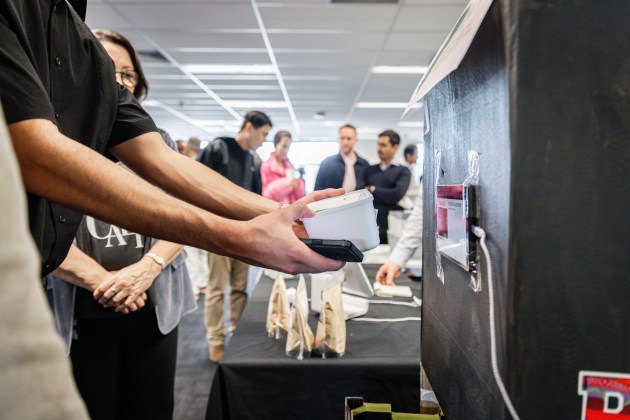The University of Technology (UTS) Sydney has committed to an ongoing annual investment of $250,000 for its University-SME partnership program, following a successful 18-month trial that saw packaging innovation emerge among the projects.
Delivered through SME@UTS, the initial $1.3 million investment by UTS and the federal government supports NSW businesses to invest in next-generation advanced manufacturing solutions.
The holistic approach to SME engagement has so far connected 17 SMEs to UTS student-led projects valued at up to $15,000 each.
The program also offers a wealth of other low or no-cost engagement opportunities, including future-map strategic workshops, masterclasses, and innovation consultants, along with access to world-class R&D facilities and university expertise.
“SME@UTS supports SMEs to invest in innovation and digital technologies by providing access to university resources, including the remarkable expertise of UTS students,” said Annette Dockerty, program lead of SME engagement at UTS.
“SMEs can also extend their professional networks and tap into resources across our innovation ecosystem that includes CSIRO, all levels of government, industry groups, and other university and VET partners.”
Over the last 18 months, student projects funded by SME@UTS have delivered everything from IoT wearable devices, web-based services, and new business models to new robotic product strategies.
These collaborative projects also provide work-integrated learning opportunities for UTS students, leading to internships and jobs as SMEs fill their talent pipelines.
At technology solutions company Opm.Systems, students in the UTS Optik Engineering Consultancy internship program built a software platform that supports SMEs to automate their standard business processes.
At Sydney-based fried chicken outlet Butter and its associated social enterprise arms Betizen and Forever Containers, another Optik partnership is tackling the challenge of plastic waste in Sydney’s CBD.
This novel food packaging system will soon see takeaway meals at the UTS Central Food Court distributed in trackable and reusable containers.
“Our student group had a mix of skills from engineering to marketing and business – perfect for a project of such complexity,” said Julian Cincotta, Butter’s chef and co-owner.
“This is something we’re passionate about developing while also working full-time, so having a group of switched-on students who had capacity to work on the project definitely moved us along faster than we could have hoped to move alone.”
SME@UTS is supported by funding from the Commonwealth Department of Education until December 2023.
Based on the outstanding results of these first 17 projects, UTS has committed to an ongoing annual investment of $250,000 into the SME@UTS program.
The university is currently seeking additional support from state and federal governments for 2024 and beyond.







